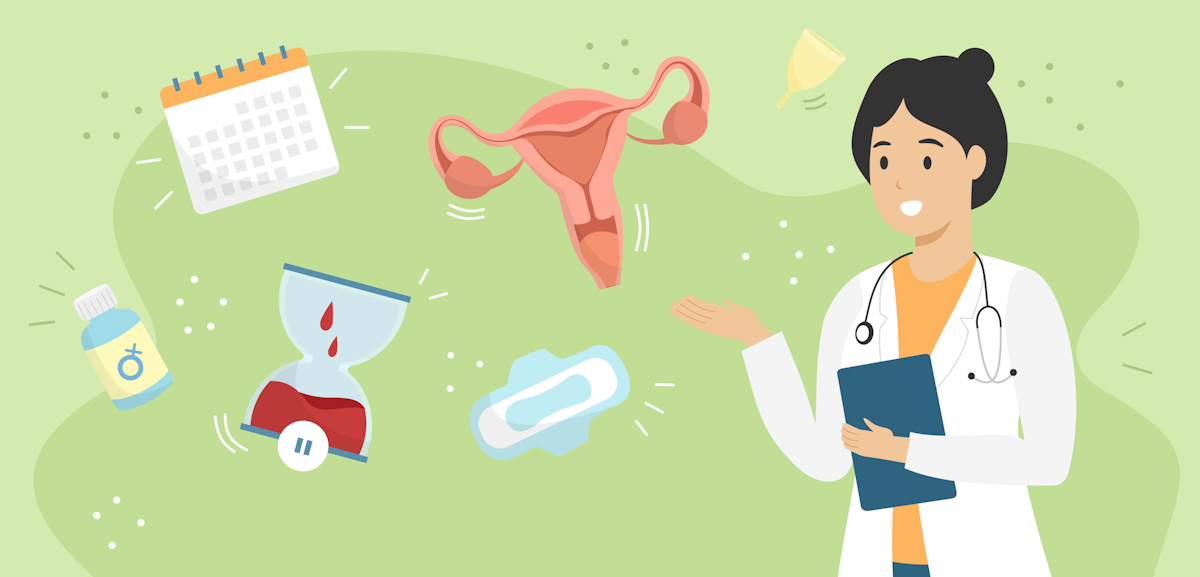

How To Cope With Perimenopause Symptoms And Menopause Supplements To Help
Reaching your 40s is an exciting milestone. For many women, their 40s can be one of the most productive stages in their life. You may be promoted to a higher position at work, starting a new creative hobby, or starting to travel to the top destinations on your bucket list. However, you may be noticing some changes in your body as you celebrate a new decade of your life.
A popular myth is that menopause happens overnight. But this is far from the truth.
It is reasonable to feel anxious about these changes. Some of them take place years before your body finally reaches menopause.
If you’re starting to feel unusual symptoms now, you may be in your perimenopause stage.

What is perimenopause?
Menopause occurs after a woman has not had her period for 12 months. Perimenopause or the menopausal transition is when the ovaries produce fewer hormones, and the menstrual and ovulation cycles occur less often. For most women, this transitional stage begins between the ages of 40 to 55.
During perimenopause, women notice changes in their monthly cycles and other symptoms. Some physical signs of perimenopause include:

1. Irregular Menstrual Periods
Irregular periods are usually the first sign of a woman going through menopause. Your menstrual cycle can occur more or less often, but the monthly patterns vary among all women. Your period days may be shorter or longer. Bleeding may also be lighter or heavier than your regular cycle.

2. Hot Flashes
Hot flashes are a sudden feeling of heat in the upper part of the body. Your neck and face may turn red because of the increased blood flow. Afterward, you may experience heavy sweating and shivering. These hot flashes can occur once a day or within several hours of each other.

3. Trouble Sleeping
Around midlife, most adults have trouble getting a good night’s sleep. As a woman in perimenopause, night sweats can interrupt your sleep. This is due to hot flashes that are strong enough to wake you up.

4. Bone Loss
Decreases in the estrogen hormone during perimenopause can lead to a decrease in bone density. Your bones can become weaker and less dense, which slows down the recovery from injuries such as fractures.

What can make symptoms worse?
In general, women going through menopause transition experience symptoms differently. Some may not experience symptoms at all. Many factors can affect the severity of perimenopause symptoms.
Smoking
Aside from the known concerns related to smoking, older adult women who smoke are more likely to go into perimenopause earlier in life. These women also experience frequent and more severe hot flashes.
Women who smoke have estrogen hormone levels that fall faster compared to those who do not smoke. Loss of bone density is also faster in women who smoke due to free radicals created by cigarette smoke.

Stress
Perimenopause may have an effect on your mood and mental health. You may be having mood swings, irritability, and brain fog. These may be due to midlife changes like concerns about aging, struggles with adolescent children, empty nesting, and caring for aging parents.
Perceived stress and stressful experiences may worsen the severity of perimenopause symptoms. Women who have strong social support can tackle stress and perimenopause symptoms better than women with limited social support.


How to deal with perimenopausal symptoms
Your menopausal transition can start earlier than expected. During this time, shifting hormone levels, bone loss, and other changes to your body may be alarming. However, there are ways to minimize the effects.
Leading a healthy, active lifestyle can improve your health in the long run, not just as you approach menopause. Below are some things you can do to minimize the effects of perimenopausal symptoms.


Quit smoking and drinking alcohol

Get enough sleep

Introduce Calcium-rich food into your diet
It is best to consult with your doctor regarding the diagnosis and treatment of any symptoms you may be experiencing. You can also ask them about medicine and supplements that can help with your perimenopause symptoms.

How do you know it’s perimenopause?
The tell-tale sign that you are going through perimenopause is changes to your regular menstrual cycle. Irregular periods and heavier or lighter bleeding are normal indications of perimenopause.
However, doctors may also conduct tests to rule out other causes of an irregular period. These can range from infections to hormonal problems like thyroid-related illnesses or hyperprolactinemia, or uterine problems. Some types of tests include pelvic exams, FSH (follicle-stimulating hormone) blood tests, and ultrasounds.

Menopause Supplements To Consider
While experiencing menopausal symptoms are normal, they can be unpleasant. To help manage these symptoms, consider taking supplements like Neufemme and CaD3 FS for added support.

CaD3 FS
The combination of Calcium and Vitamin D3 in CaD3 FS improves bone health and prevents calcium deficiency commonly experienced by women. This supplement can benefit older adult women who lose bone density throughout their menopausal years.

Neufemme
Bionutra Neufemme is a food supplement that helps to manage symptoms and discomforts associated with perimenopause and menopause. Each capsule consists of herbal extracts from Mung beans and Eucommia bark which brings balance back into the body.
Going through perimenopause means expecting some notable changes to your overall health. Whether you are approaching this new life stage or are already in it, bothersome symptoms may interfere with your daily activities. Seek additional help from your trusted healthcare provider to find ways to ease your symptoms.
Incorporating food supplements like CaD3 FS and Neufemme takes care of your symptoms while restoring balance to your body. Remember that you can always count on helpful medicine to support you as you progress towards other great milestones. — (Nurturemed)

